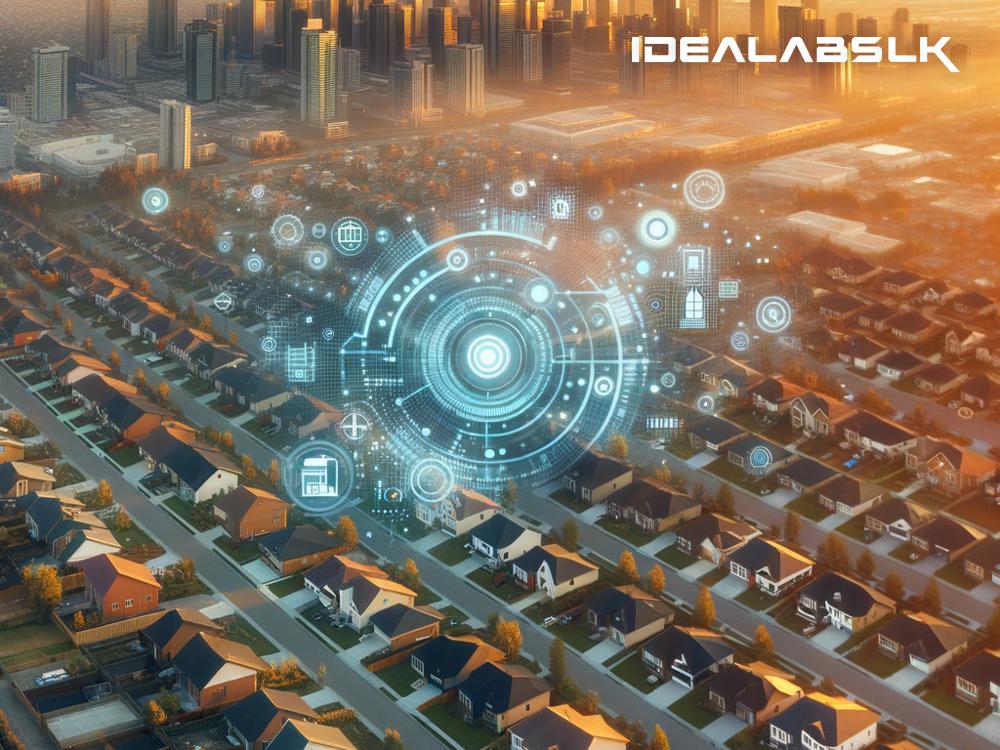AI for Residential Property Pricing Models: Simplifying the Complex
In the vast world of real estate, determining the right price for a residential property can be as complex as finding a needle in a haystack. With numerous factors to consider, from the number of bedrooms to the proximity to local amenities, the task is daunting. However, the advent of Artificial Intelligence (AI) in residential property pricing models is changing the game, bringing simplicity and accuracy to what was once a maze of guesswork.
Understanding AI in Property Pricing
Artificial Intelligence, in the simplest terms, refers to machines or software mimicking human intelligence to perform tasks and improve themselves based on the information they collect. In residential property pricing, AI models take in vast amounts of data, analyze patterns, learn from them, and make predictions or decisions based on that learning. It's like having a super-smart, tireless friend who goes through records of thousands of property sales, notices every tiny detail, and tells you, “Based on what I know, this is the best price for your home.”
Breaking Down the Complexity
When setting a price for a house, there are layers and layers of factors to consider. Location, property size, age, nearby schools, the condition of the house, economic conditions…the list goes on. AI models digest all these variables in a heartbeat and understand how they interconnect, something that's incredibly time-consuming and complex for humans to do at the same scale.
For instance, how much more does a fourth bedroom add to the value compared to a third bathroom? Or how does the proximity to a top-rated school affect the price? AI can answer these questions with surprising precision, learning from historical and current market data to predict how these features impact property values.
The AI Advantage
One of the biggest advantages of using AI in residential property pricing is accuracy. Since AI systems learn from a broad spectrum of data, including minute details that might escape human attention, they can provide precise pricing recommendations. This means less room for error and a fairer valuation that reflects the true market value of a home.
Additionally, AI can save significant time and effort. Traditional property valuation methods require humans to manually gather and analyze data, a process that's not only time-consuming but also prone to human error. AI can perform these tasks in a fraction of the time, making the pricing process quicker and more efficient.
Facing the Challenges
However, incorporating AI into property pricing isn't without its challenges. One major hurdle is ensuring the quality and completeness of the data fed into AI models. Inaccurate, incomplete, or biased data can lead to flawed valuations. Therefore, constant monitoring and updating of data sources are crucial to maintain the reliability of AI-based pricing models.
Another challenge is the need for transparency. It's important for users to understand how the AI arrived at a particular price recommendation. Ensuring these models are explainable and transparent builds trust among users, whether they're homeowners, buyers, or real estate professionals.
The Future Is Now
Despite these challenges, the integration of AI in residential property pricing is not just a trend but a significant shift towards more sophisticated and accurate real estate transactions. As technology progresses, we can expect AI models to become even more advanced, with improved learning algorithms that can provide even more precise valuations and offer personalized recommendations based on individual preferences and behaviors.
In Simple Terms
Imagine you're selling a giant puzzle - your home. Traditionally, you might try to guess its value based on the few puzzles you've seen sold in your area. But what if a friend could instantly recall every puzzle sold, examine every piece, its colors, and how it fits with other pieces, then tell you exactly what your puzzle is worth? That friend is AI, revolutionizing how we price our most valuable puzzle - our home.
Conclusion
AI in residential property pricing represents a significant leap forward in how we understand and value real estate. By harnessing the power of data and learning, AI models offer a smarter, faster way to price properties that reflect their true market value. As this technology continues to evolve, it promises to make the property pricing process more accurate, transparent, and accessible for everyone involved. Indeed, AI is not just transforming the way we sell homes; it's redefining our very understanding of their worth.

